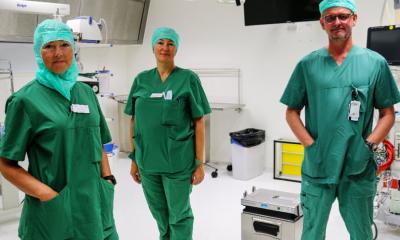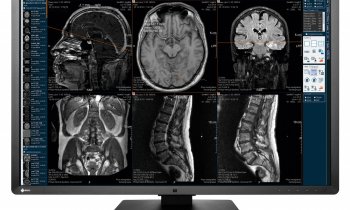News • Widening the pool
Older donor lungs should be considered for transplantation
With a scarcity of lungs available for transplantation, the use of lungs from donors older than age 60 has been shown to achieve reasonable outcomes and should be considered as a viable option, according to research published online in The Annals of Thoracic Surgery.
“The availability of suitable donor lungs for transplantation continues to be a major obstacle to increasing the number of lung transplants performed annually,” said William Whited, MD, of the University of Louisville in Kentucky. “Research such as this that explores the means of expanding the donor pool is of critical importance.”

Dr. Whited, along with senior author Matthew Fox, MD, and other colleagues from the University of Louisville queried the United Network of Organ Sharing (UNOS) thoracic transplant database to identify lung transplant recipients age 18 years or older. Between January 2005 and June 2014, 14,222 lung transplants were performed. Of these lung transplant recipients, 26% were age 50 years or younger, with 2% receiving lungs from donors older than age 60. Among this group of younger patients who received older donor lungs, there was no significant difference in 5-year survival when compared to patients who received lungs from younger donors.
The researchers also examined the impact of double versus single lung transplant on long-term survival, finding that younger patients who received older donor lungs experienced much better outcomes when a double versus a single transplantation was performed. The study showed that in younger patients who received a single lung transplant using organs from older vs. younger donors, there was a lower 5-year survival (15% vs. 50%). However, with a double lung transplant, there was no significant difference in 5-year survival (53% vs. 59%). “This study demonstrated that reasonable outcomes are possible with the use of advanced age donors,” said Dr. Whited.

“Ideal donor” criteria vary by hospital, but the researchers said that the criteria generally consist of brain death, age less than 45 to 50 years, minimal smoking history, and no evidence of pneumonia or trauma. Donor organs that do not meet all of the ideal donor criteria are sometimes accepted, but not always. Dr. Whited explained that while the use of extended criteria donor lungs varies from program to program, most surgeons should be willing to accept non-ideal donors, especially those who are older but otherwise good candidates.
“The vast majority of potential donors do not meet the relatively strict donor criteria,” said Dr. Whited. “As a result, we need to continue exploring options that would expand the donor pool and more aggressively utilize extended criteria donors. Much like the general population, the donor pool has continued to grow older. Now more than ever, we have to rely on older donors.”
The U.S. Organ Procurement & Transplant Network (OPTN) reports that 1,399 people currently are waiting for a lung transplant in the United States. The overall median waiting time for candidates on the wait list is 4 months, while more than 200 people die annually waiting for a lung transplant, according to an OPTN report.
Source: The Society of Thoracic Surgeons
10.11.2017








